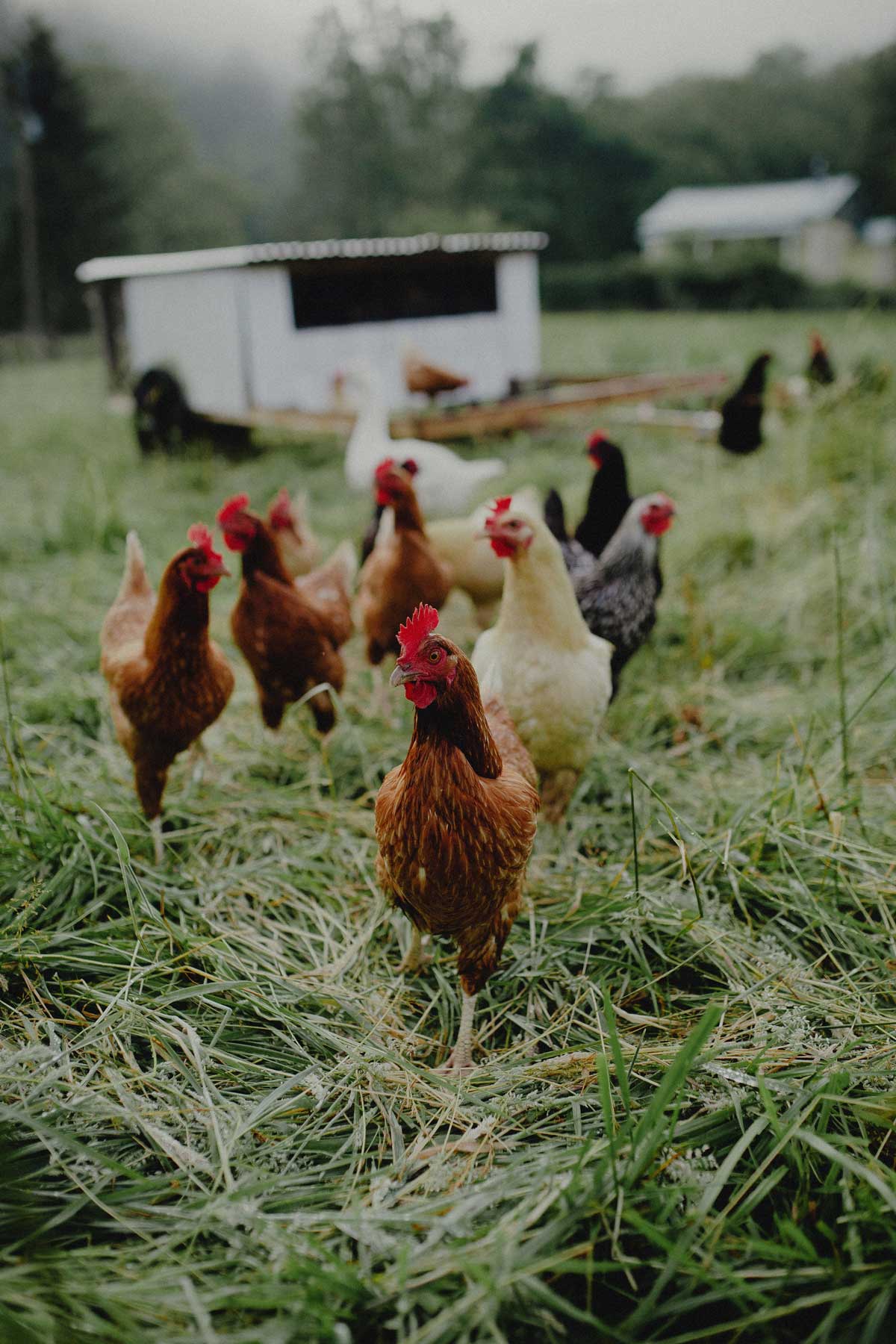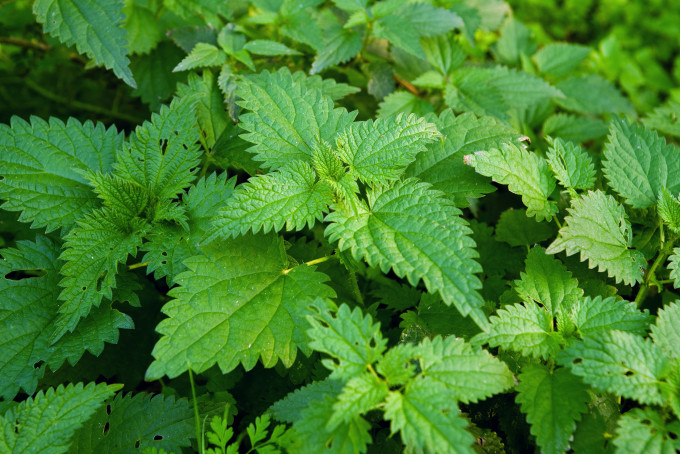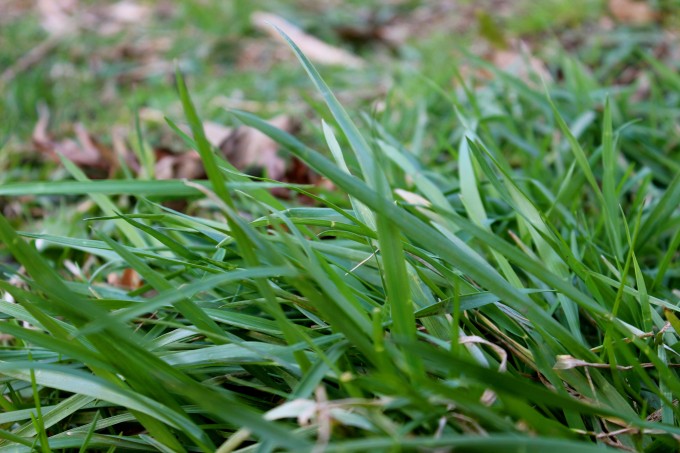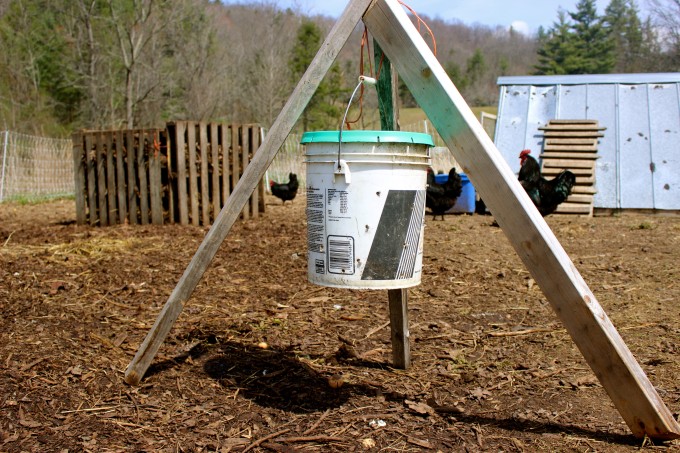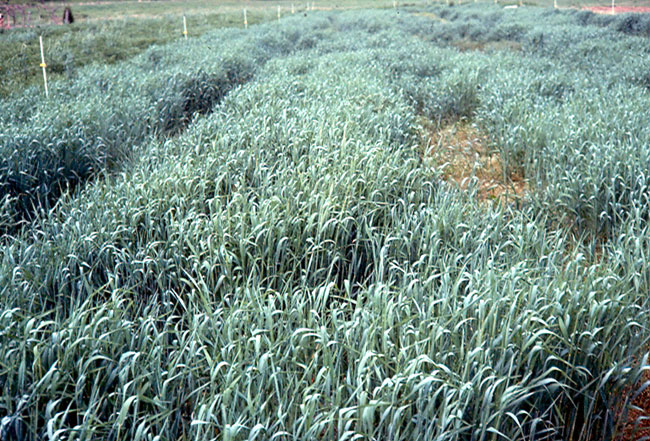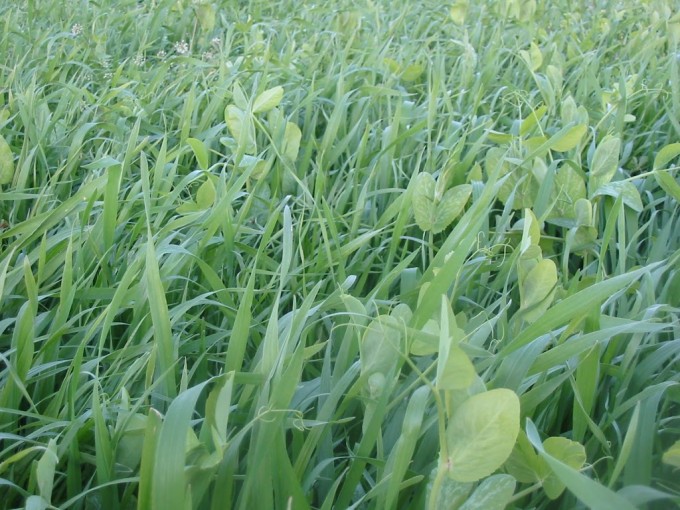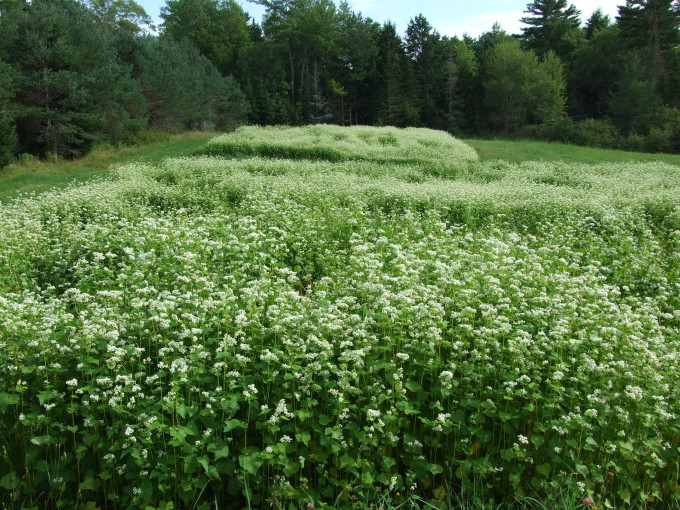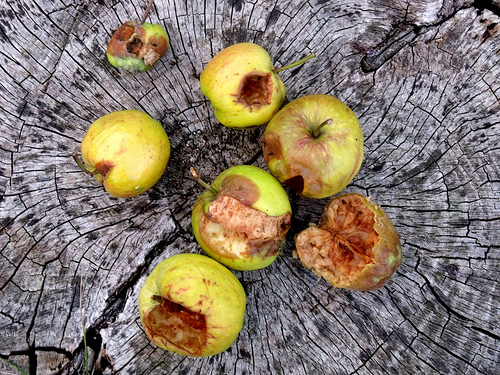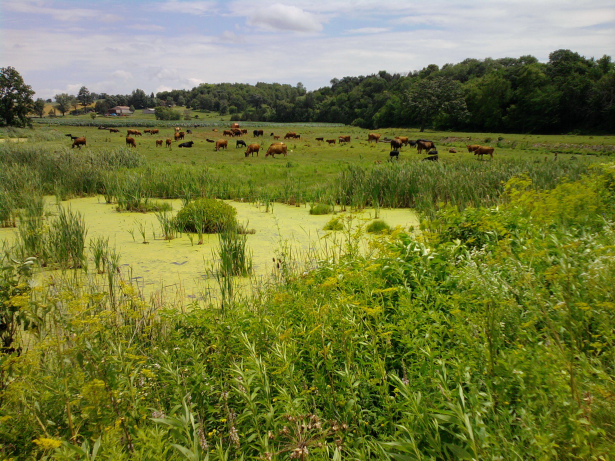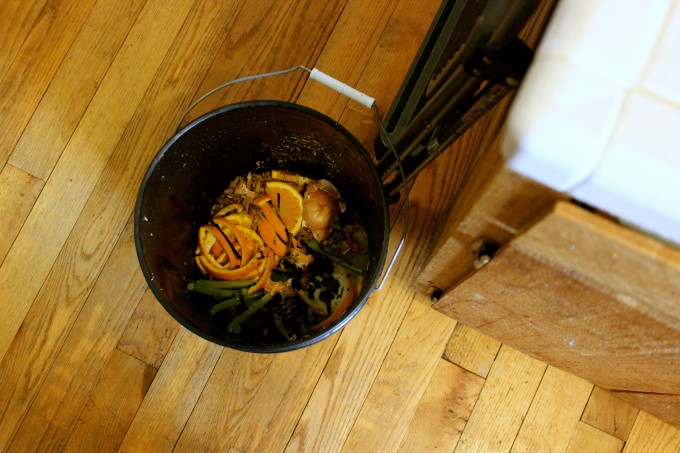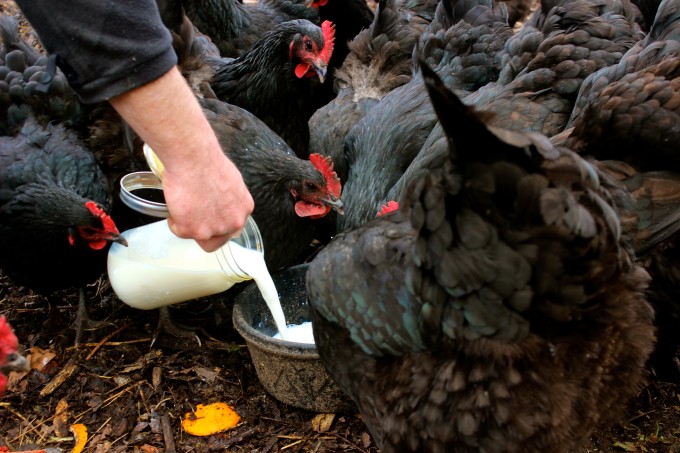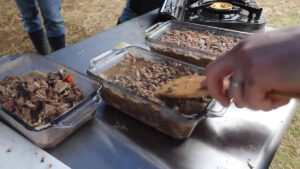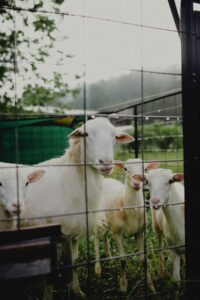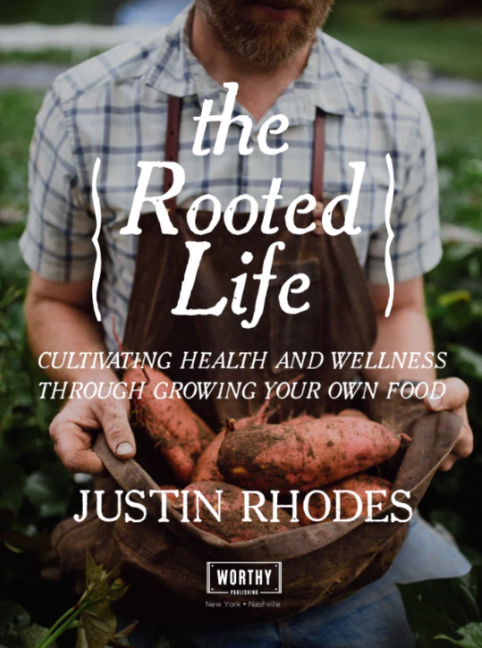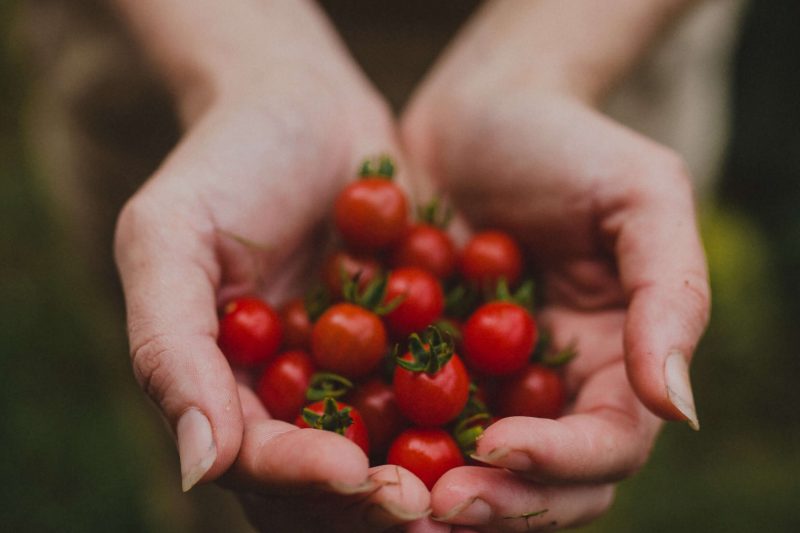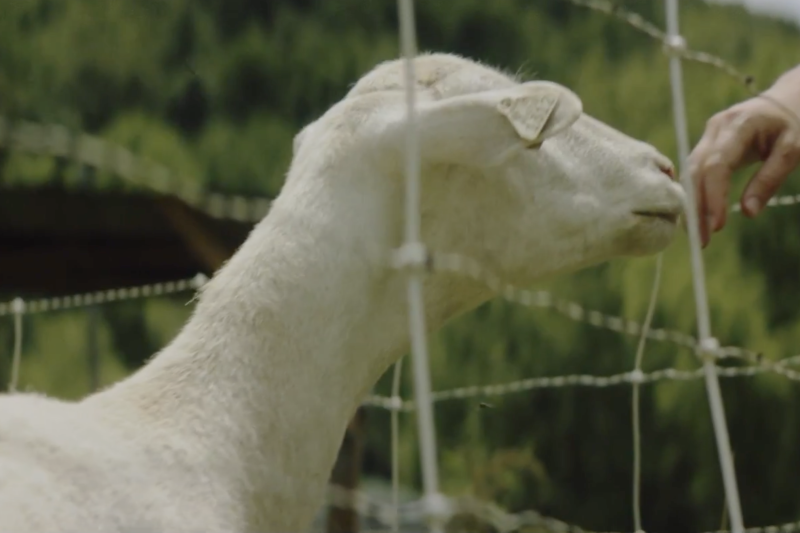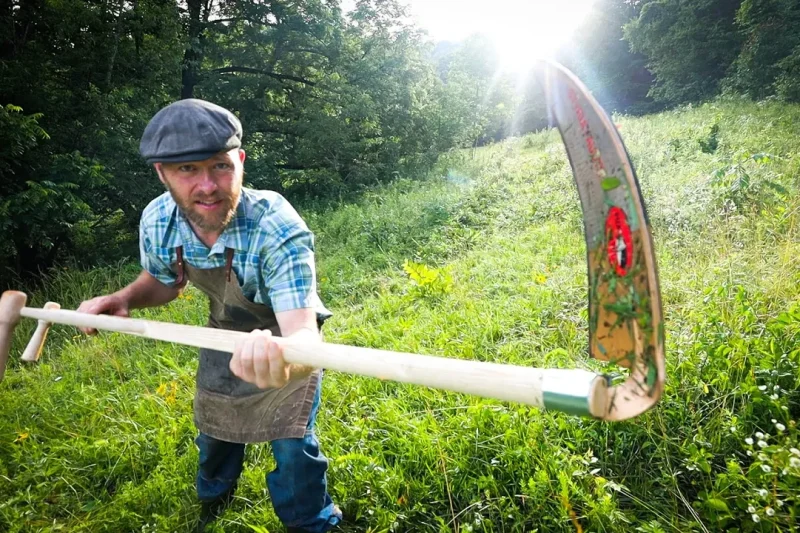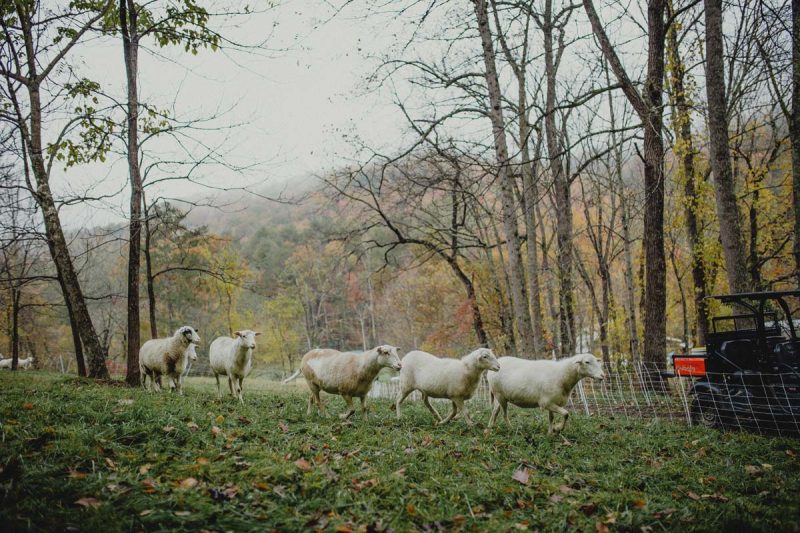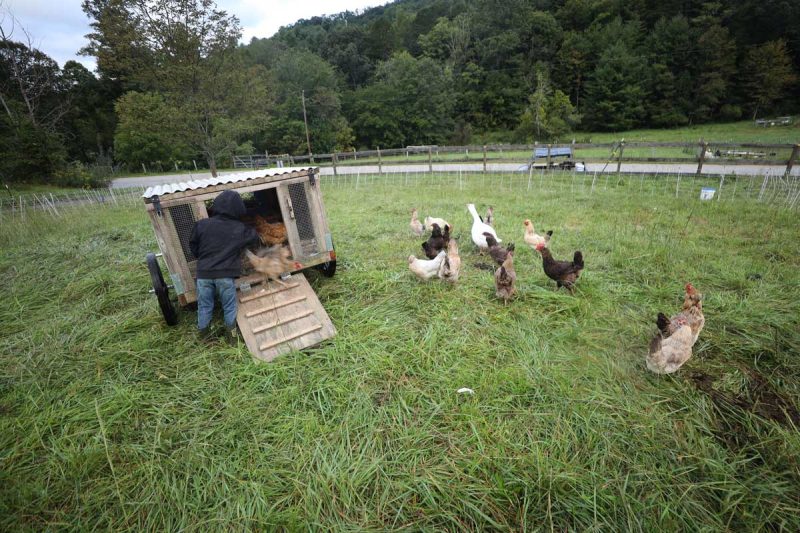Also, by using chickens for garden pest control and disease in orchards, you can control the pest population while providing free and natural food for your flock. Feeding chickens without grains is what using the permaculture approach for your chicken flock is all about.
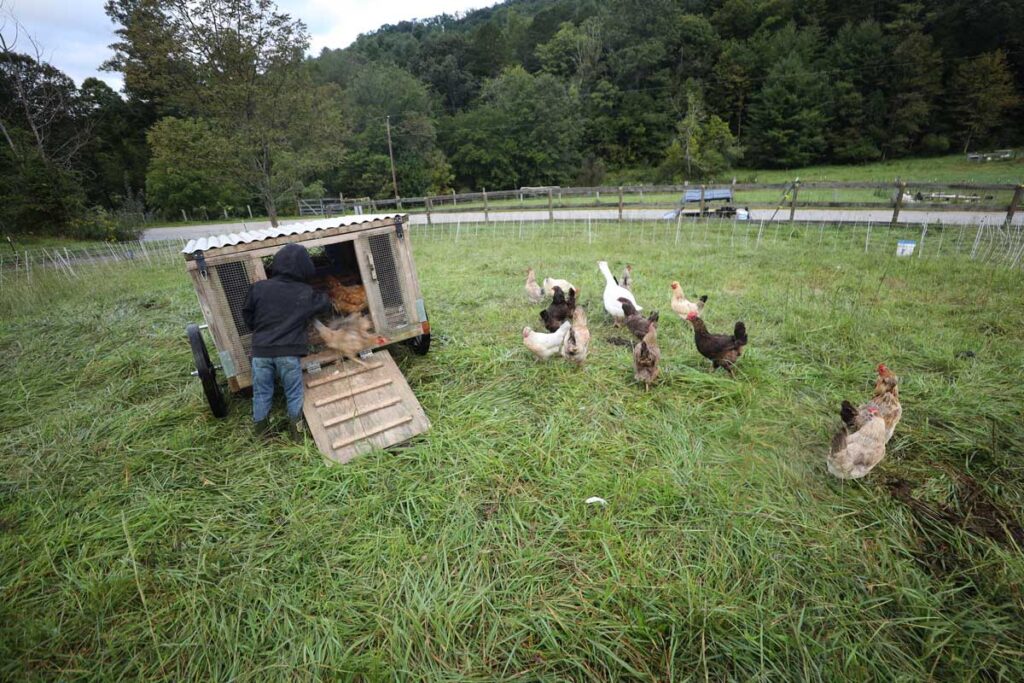
Why We Tried Feeding Chickens Without Grain
When we started raising meat chickens, we would buy commercial feed without thinking about what was in it. Eventually, we decided to buy feed that’s rated organic to ensure the health of our chickens and our family.
We found that the organic feed tripled our costs! It would cost us more to raise chickens organically than buy organic meat at the farmer’s markets.
We had to do something to cut costs, so we started experimenting with feeding our chickens. We even learned how to mix our own chicken feed.
Next, we built a chicken tractor (and later, I designed and built the chickshaw) to move the chickens to new grass daily. Moving the chickens only took about ten minutes of our time, and it cut the daily chicken feed from ⅓ pound per day per chicken to ⅒ pound per day.
We were so excited about the cost savings that we decided to try the free range system. We did an experiment raising one group of chickens free-range and one group of chickens on grain, and were surprised to find the free-range chickens ended up weighing more.
We raised delicious, free range, organic meat chickens and were able to butcher our chickens at less than 67 cents per pound.
Not everyone can free range their backyard chickens. You get manure everywhere, and most people don’t have the room. An efficient stationary coop design may work better in this case. Do not despair if you can relate, there are still plenty of other ways to feed chickens without using grain!
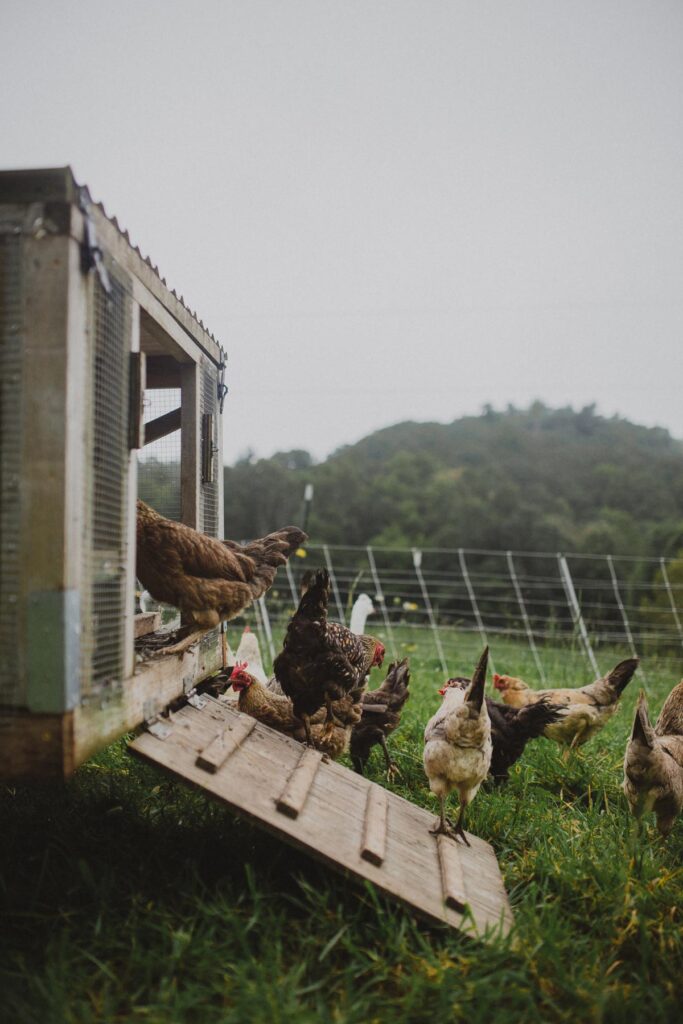
Can Chickens Survive Without Grain?
The truth is that grain free chickens can be healthy and productive egg layers. There are many ways to feed chickens inexpensively that are grain free.
Chickens have only been fed grains for the last 100 years. Before that, chickens were free ranged for their food. Chickens are extraordinary at foraging.
Raising free range chickens has many benefits, including that they produce more nutritious eggs for your family. Free range eggs have one third less cholesterol than grain fed eggs and are richer in Vitamins A, E and Omega-3.
Free range chickens are less destructive than cooped up chickens and have fewer behaviors from boredom, including fighting each other. Also, their nails will be trimmed naturally by all the scratching they do outside their coop.
Ways to Feed Chickens Without Grain
Feeding chickens without grain is not just possible but relatively easy. Look for protein rich foods high in vitamins and minerals, and your flock will do nicely.
Comfrey
Most farmers consider comfrey an invasive weed, but it’s an excellent feed for your flock. Not only do chickens love it, but it’s also high in protein, vitamins B12, A and C, potassium, sulfur, calcium, iron, phosphorus, selenium and fiber.
Comfrey is high in nitrogen, so it’s a great addition to your compost heap. Its addition will encourage bacterial growth, which helps to heat your compost piles and speeds up the composting process.
Order comfrey online, plant it in a fertile hole and harvest it eight times a year by cutting it to two inches. (Here is a list we’ve compiled of herbs that are useful for maintaining the health of chickens.)
Stinging Nettle
Another plant considered to be an invasive weed is nettles. This plant is both edible and medicinal for your chickens. Stinging nettle contains Vitamins K, B and A, iron, manganese, copper, calcium, and magnesium. When it’s dried, it has excellent protein properties.
Stinging nettle also contains Omega-3 oil, much like that found in sunflower seeds and lycopene, a powerful antioxidant. Nettles have a high carotenoid content, giving your eggs that beautiful dark yolk.
Stinging nettle grows in the wild and can also be planted and harvested. Stinging nettle is also great for mulching and composting.
Pro-Tip: Other beneficial weeds include dandelion, burdock, yellow dock, and lamb’s quarters.
Grass and Lawn Clippings
Fresh grass or lawn clippings can substitute chicken feed for up to 20 percent of the chicken’s diet. Fresh grass also contains bugs which are a high-protein food for your flock. The grass is high in protein, iron and Vitamin C.
Hay
Your chickens will thoroughly enjoy a bale of hay. Alfalfa hay is an excellent source of fiber and protein, and your chickens will peck at it happily.
Hay often contains several types of grass, including ryegrass, clover and fescue, and legumes. These grasses are high in Vitamins A, B, C, E and K, as well as calcium and iron. Hay also helps to keep glucose level stable since it slows down blood sugar absorption.
Animal Carcasses
Why not turn a problem into a solution? If you have a predator giving you problems, trap it or shoot it and feed it to your chickens. Chickens are omnivores, and meat helps to meet their protein requirements.
Cut the carcass open so that the chickens have access to the insides. Chickens will peck away the meat and soft tissues and leave the bones, so remove the carcass after a few days and before it rots.
Maggots
Another great thing to do with a pesky predator or road kill is to make a maggot bucket. Suspend a bucket with ⅜ inch holes drilled into it with a wooden tripod. Put the meat inside. As the flesh decomposes, flies will go into the holes and lay their eggs. The larvae will hatch and fall out through the holes.
Maggots are high in protein, fat and amino acids, and your chickens will gobble them up.
Mice
If you live on a farm, you have mice. Again, chickens are omnivores, and they enjoy a meaty snack. Be sure to refrain from using mouse poison since your chickens will eat a mouse when they get the opportunity.
Mice are high in protein, and since their bones are relatively small, the chicken will eat those, too, giving them a significant calcium boost for sturdy eggshells.
Potatoes
If you have extra potatoes from your garden, they can become highly nutritious food for your chickens. Cook and cut up potatoes before feeding them to chickens to make them easier to eat.
Potatoes contain vitamins, potassium and iron, which help build strong bones. They also have anti-inflammatory properties and enhance fat absorption. Potatoes are high in potassium and lack cholesterol which aids in robust heart health for your flock.
Pro-Tip: Green potatoes contain the toxins solanine and chaconine, which are poisonous to chickens. Don’t use any part of green potatoes.
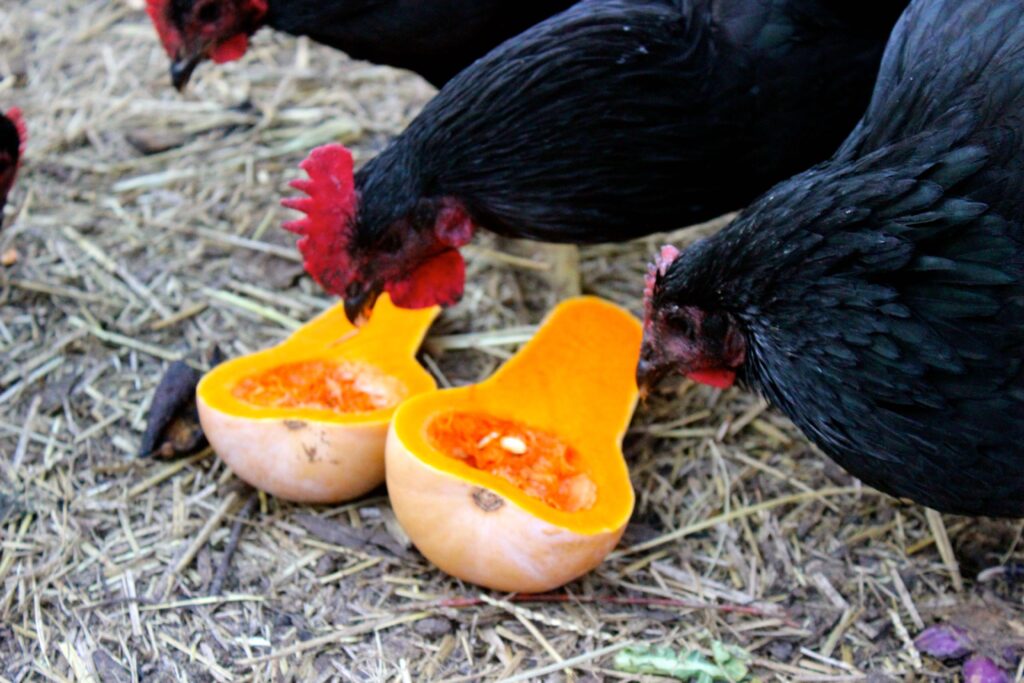
Winter Squash
Winter squash saves very well, even at room temperature. Store them in a cool, dry place for chicken for a healthy addition to your chicken feed all winter. Cut the squash in half and feed it to your chickens. They will love the seeds and the flesh of the squash.
Squash is high in Vitamin A, which helps the immune system to function at its best. Chickens who are lacking in Vitamin A will get sick more often.
Fruits and vegetables are high in Vitamin C, which aids in stressful situations. Chickens can become stressed by heat, cold and other environmental factors. During these times, they need more Vitamin C. Squash is also high in Zinc which aids in your flock’s overall growth and development.
Berries
Chickens will love all kinds of berries. They can eat blackberries, strawberries, blueberries, juneberries, and autumn berries. Berries are soft, which makes them easy for your chickens to eat.
Berries are enticing to your chickens because they are sweet, just like a sweet treat is to a human. Berries are packed with vitamins and minerals and are high in fiber which is suitable for your flock’s digestive systems.
Berries are also high in Vitamin A, which is necessary for good egg production. If you notice a decline in egg production, consider giving your laying hens a treat loaded with Vitamin A.
Forage or Grain Crops
Consider planting a grain crop just for your chickens. Sunflowers, dent corn, alfalfa, clover, sorghum, amaranth and buckwheat make great forage crops for chickens. These crops are high in protein and fiber.
If you are building your soil through cover crops, allow your chickens to come in and eat the remaining greens after you harvest the crop. The bonus is that they will till the soil also.
Pro-Tip: If you’re going to feed your chickens grains, consider fermenting them. Fermenting will provide a massive boost to their health. Get a bucket and cover a couple of days’ food with water. After one day, it will be easier to digest. After two or three days, it will be fermented.
Scoop their daily ration and add more grain. Fermentation increases the digestible nutrients in grains and provides probiotics that boost the immune system. Also, chickens eat 50% less fermented feed because it’s denser and more filling.
Nut Trees
Nut trees are a great chicken food resource in the fall. Chickens can eat acorns, beech nuts, pecans, black walnuts and hickory nuts. Take the nuts, break them up with a hammer, and feed them to your chickens. They will love them.
Fruit Trees
Plant fruit trees for yourself and use the imperfect fruit for your chickens. They will eat persimmons, mulberries, apples, peaches, and pears. Harvest the fruit and take it to them or put your chickens in the orchard after harvest to clean up the fallen fruit and sanitize your orchard.
By putting chickens in your orchard, when the pest-ridden fruit falls to the ground, they will gobble up the fruit and the pests. Also, setting your chickens in the orchard in the early spring will eat the pests while they are still in the pupal stages and before the pests become a problem.
Pro-Tip: Apples are excellent for chickens, but you must remove the seeds first. Apple seeds contain cyanide which will kill chickens.
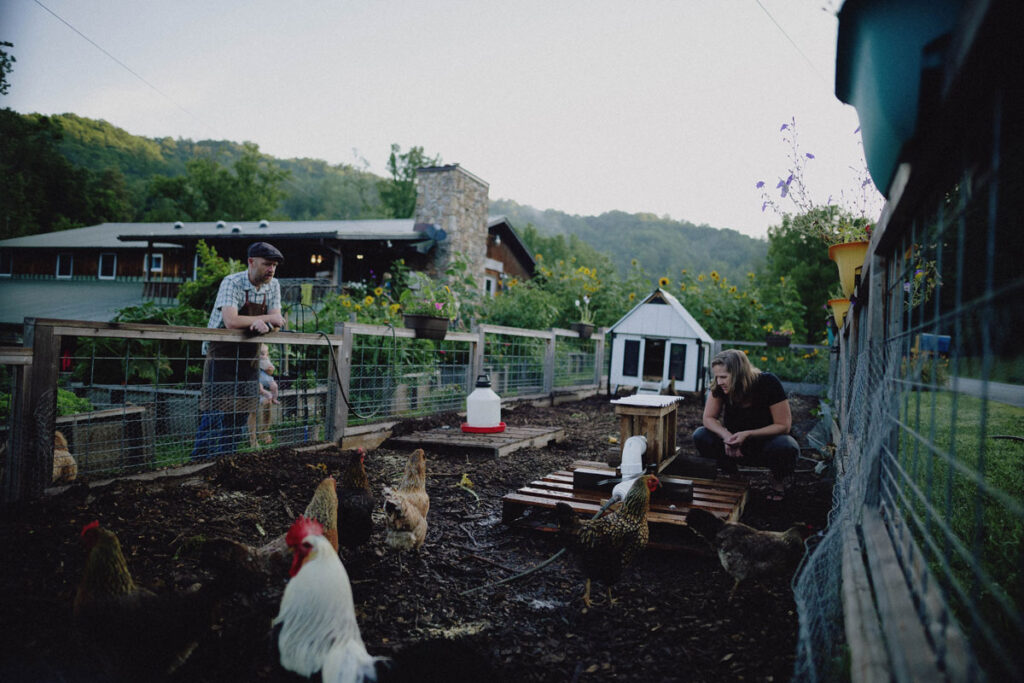
Garden Pests
Again, turn a problem into a solution by feeding garden pests to your chickens. If you have pests in your garden, take a bucket of shallow water and knock the beetles into the water. They can’t fly with water on them.
If given a choice, chickens will always go for the bugs first, so they will love this tasty treat.
Fish
If you have a pond on your property, why not stock it with fish for your family? Fish ranks as one of the healthiest foods in the world for humans and chickens. Your chickens can eat the leftovers, or you can harvest the fish just for them.
Fish can meet the high protein requirements of chickens while providing the much-needed amino acids; the probiotics found in fish work perfectly with the chicken’s digestive system biome.
Duckweed
Another benefit to having a pond is the ability to harvest duckweed. Duckweed can become a problem in a pond, so gather it, let it dry, and then feed it to your chickens. Dried duckweed contains 40% protein, making it one of the highest protein-containing foods.
Soldier Fly Larvae
Soldier flies look like a wasp, but they are black. They only live for a few days, but they lay eggs which turn into grubs that pack a lot of nutrition into a tiny package. Soldier fly larvae contain protein, fat and many other vitamins and minerals.
Build a specialized bin and fill it with rotting vegetables. The soldier flies will lay their eggs, and you can harvest the larvae for your chickens. Soldier fly larvae are an excellent food for helping your chickens thrive during winter.
In my vlog, “Bring on The Soldier Flies” I show how I put mine together:
Vermicomposting
Many backyard homesteaders are discovering vermicomposting. Vermicomposting uses earthworms to convert waste materials like rotting manure, cardboard, and newspaper into compost. This compost becomes an excelling fertilizer packed with worm castings.
The added benefit is an abundance of worms for feeding your chickens. Just leave enough worms in the compost for them to be able to reproduce, and give the rest to your chickens.
Kitchen Scraps
On average,16% of a home’s trash is food waste. Why not give all your food scraps to your chickens? Keep a bucket in your kitchen and turn your food scraps into eggs and chicken meat.
Farm Products
If you have chosen a breed of cow that is best for milking, chances are even after using the calf-share approach and milking your cow daily, you’ll still have extra milk.
Set aside milk for your chickens to drink straight out of a bowl or add it to grains. As strange as it sounds, your chickens will eat eggs raw or cooked.
Chickens will eat leftover meat from slaughtered animals. If you butcher a cow and don’t plan on eating the heart or the tongue, feed it to your chickens or add it to the maggot bucket.
If you have any bones you aren’t using, use them to make bone broth for your chickens. It’s exceptionally high in calcium and perfect for your egg layers.
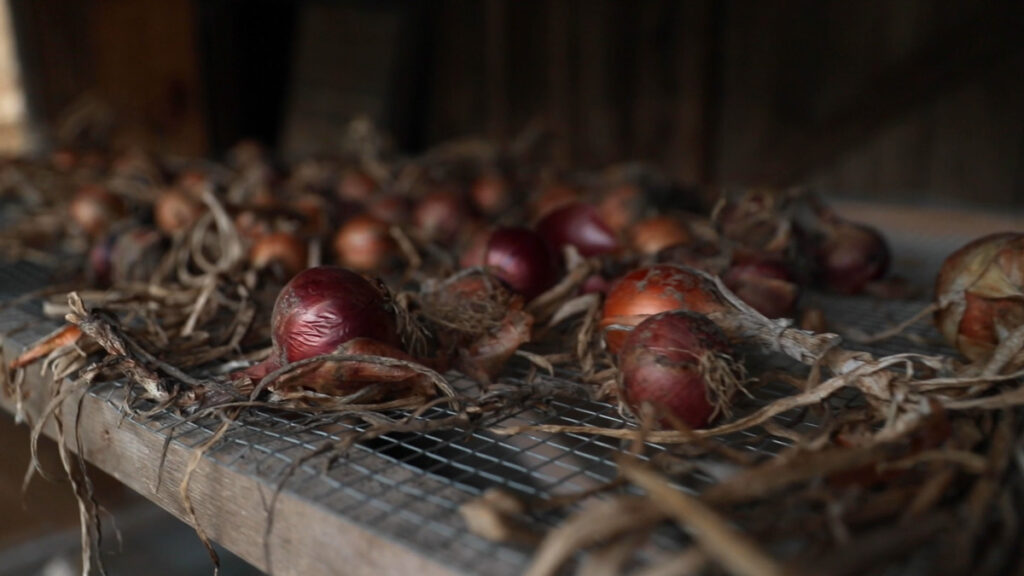
Foods You Shouldn’t Feed Chickens
Chickens are extremely smart; generally, they won’t eat things they shouldn’t eat. However, below is a list of items not recommended for chicken feed. Remember not to add these items to your compost pile if your chickens eat off it.
- Uncooked Rice – Cooked rice is okay, but uncooked rice will swell and cause digestive issues.
- Salty Foods – Salty foods can cause hypernatremia, an electrolyte problem.
- Onions – Onions contain thiosulphate, which can cause jaundice and anemia in chickens. It’s also a good idea to avoid chives and garlic. Eaten in significant amounts, they can cause the same problem as onions.
- Citrus Fruits – Chickens are sensitive to the citric acid in citrus fruits.
- Chocolate – Chickens should avoid chocolate, candy and all sugar since they can cause irregular heartbeat and even heart attacks in chickens.
- Tomatoes – When tomatoes are not ripe, they contain solanine and chaconine. These are toxic to chickens.
- Moldy Foods – Mold can develop toxins, so it’s best to stay away from it. If you are fermenting grains, throw them out if they become moldy.
- Raw or Dried Beans – All dried beans are dangerous to chickens, especially kidney beans. Dried kidney beans contain hemagglutinin, a toxin that can be fatal to chickens.
- Some Flowering Plants – Certain flowering plants like lupine, foxglove and holly can be toxic to your chickens. Lupine can cause nervous system failure and death. Holly acts as a laxative and can cause vomiting. Foxglove contains a poison called digitalis, which causes the heart to slow.
- Rhubarb Leaves – Rhubarb leaves contain anthraquinones which work like a laxative. They also contain oxalic acids, which can be fatal to chickens.
- Avocado – The skin and the pit of avocados contains a toxin called persin. In large doses, persin can cause breathing and heart problems.
Ready to get started?
Download my printable worksheet on how to do each of these alternative feed methods.
If you liked this article, you’ll love my most popular Youtube video on How I feed my 30 Chickens on $1.25 a day.
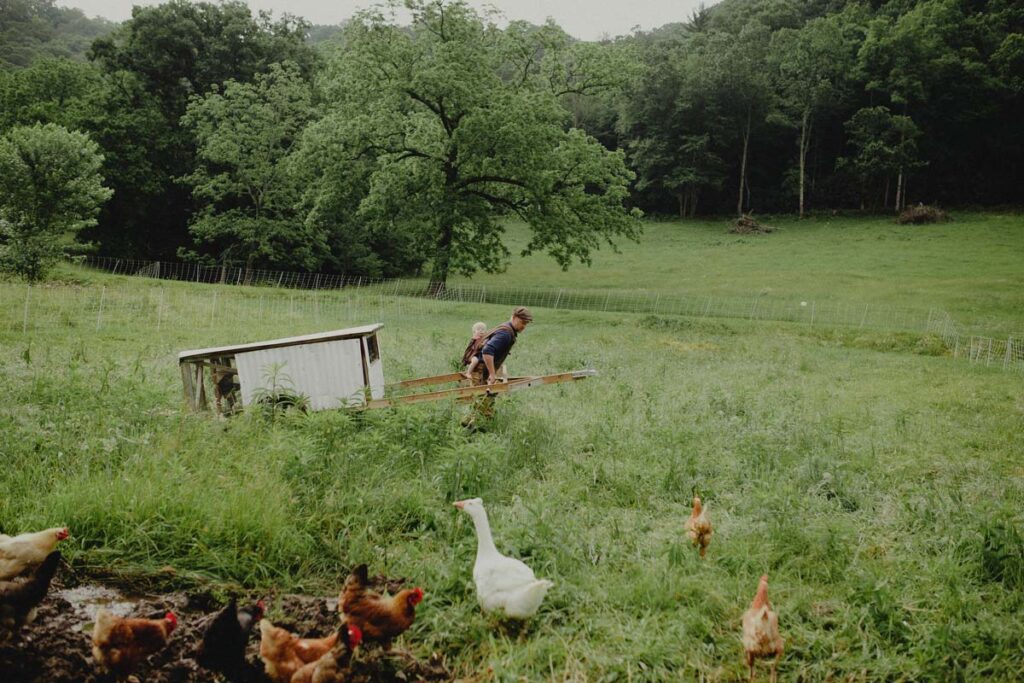
More Posts You May Enjoy
- Chicken Coop Ideas – 5 Methods That Work
- How to Care for Baby Chicks
- Backyard Chickens – How to Get Started
- Raising Meat Chickens
- ChickShaw – A Mobile Chicken Coop One Person Can Easily Move
- How to Butcher a Chicken
- Chickens in Garden Spaces to Till and Fertilize
- What To Know Before You Buy A Homestead
- How to Buy Homestead & What to Look For in a Homestead Property
- Your Land Will Tell You How To Homestead
- Homestead Planning the Right Way
- Mineral Supplements for Animals
- Fast-Growing Vegetables for a Quick Harvest

